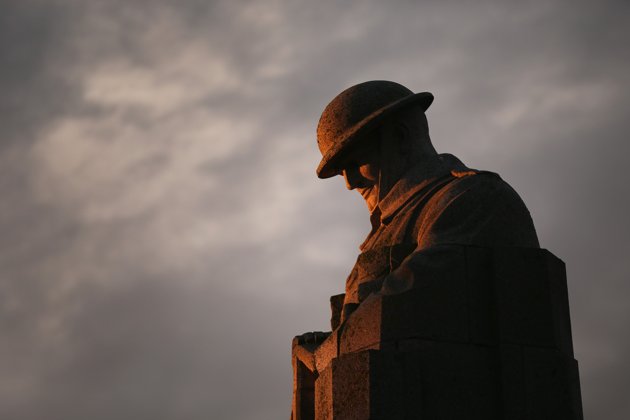
BIO-Europe® 2014 Kicks off Its 20th Year as Life Science Partnering Leader
August 17, 2014
Why it’s important to hate the Yankees
August 18, 2014
A century ago this month, several European powers began the eventually global conflagration that, in addition to millions of personal tragedies, ended the continent’s role as the world’s economic, cultural and political colossus. In the two decades after 1875, as one unfortunate measure of this dominance, half a dozen European countries seized more than a quarter of the earth’s land surface as colonies.
Britain and Germany had become manufacturing workshops to much of the world. Their citizens and other Europeans were well placed to benefit from mechanizing agriculture, the internal combustion engine, trains and motor cars, and gas/oil/electricity replacing coal as features of the Industrial Revolution.
Peace had held except for the Franco-Prussian war of 1870-71 since the end of the Napoleonic wars in 1815. In the opening years of the twentieth century, as the historian Norman Davies puts it, the “Franco-German rivalry, recurrent Balkan crises, antagonistic diplomatic blocs, imperialistic frictions and the naval arms race all combined to raise the temperature of international relations … While all the powers professed a desire for continued peace, all were preparing for war.”
[ David Jones: WWI was an almost needless war that we are unlikely to repeat ]
The lid of an increasingly fragile peace blew in June 1914 when the heir to the Austria-Hungary throne, Archduke Francis Ferdinand, and his wife were assassinated by a Serb teenager while making an ill-advised visit to Sarajevo. In July, Austria declared war on Serbia, causing Russia as Belgrade’s ally to mobilize its army. Germany declared war on Russia and France on August 1 when the former refused to cease mobilizing. Britain immediately honoured its commitment to France and Russia by declaring war on Germany when it attacked Belgium as part of the Kaiser Wilhelm’s intended assault on Paris.
Many in Britain were reluctant to enter the war. As the Economist magazine notes (Aug 5, 2014):
Before the war, the writer Norman Angell had suggested in his book, The Great Illusion, that the commercial links between the great powers were so close that war would be a disastrous option. He was ignored; to the politicians in charge of pre-1914 states, many of whom were aristocratic and thus distinctly snobby about “trade”, terms like “honor” and “glory” were more important…The leading European nation that was the most reluctant to join the war was Britain, the centre of finance and world trade…
Canada, while self-governing since 1867, remained a staunch supporter of the British Empire. As the war began, a parade of ten thousand in Toronto carried Empire banners; in Montreal, crowds sang ‘Rule Britannia’ and ‘La Marseillaise’; similar events occurred spontaneously across the country.
In the first three weeks of fighting, 45,000 Canadians volunteered. In our then population of approximately eight million, an astounding 425,000 men and women would serve the war effort overseas. After training near Quebec City, 33 ships carried the first recruits to Britain. Once in France, their courage and determination in terrible battle conditions, including facing German gas, brought much respect to them and Canada.
Among them was John McCrae, who was both a medical officer and a deputy brigade commander. During the battle of Ypres in May, 1915, he helped bury his friend Alexis Helmer, 22, while personally facing what his biographer Dianne Graves describes as a growing conflict between his “instincts as a soldier and compassion as a doctor.” To relieve his emotions while sitting on the back of an ambulance, McCrae composed ‘In Flanders Fields’, which became an international literary icon. Later, he was infected while performing surgery and became one of more than 61,000 Canadians who died in the war.
In hindsight, if all combatant armies had simply ceased slaughtering each other in a permanent truce, resuming their former boundaries, and Germany had not been defeated at a terrible cost in lives and treasure to both sides, the world might well have been spared the horrors of Adolf Hitler. Without the thoughtless redrawing of many national boundaries and onerous reparations Germans were forced to pay by the post-war Treaty of Versailles, Hitler might well have neither contested nor won the 1933 election, after which he became chancellor and went on to cause WWII and the loss of another 50 million lives.
If WWI had ended earlier, moreover, the Kerensky government in Russia might have succeeded in democratizing that country; Russians, East and Central Europeans and many others around the world might have avoided Lenin, Stalin and other tragedies of Communism after 1917.
With current events in the Middle East, Europe and Africa, it is clear that understanding history well is as much needed today as a century ago.
(Photo courtesy of Getty Images)
David Kilgour is co-chair of the Canadian Friends of a Democratic Iran and a director of the Washington-based Council for a Community of Democracies (CCD). He is a former MP for both the Conservative and Liberal Parties in the south-east region of Edmonton and has also served as the Secretary of State for Latin America and Africa, Secretary of State for Asia-Pacific and Deputy Speaker of the House.


